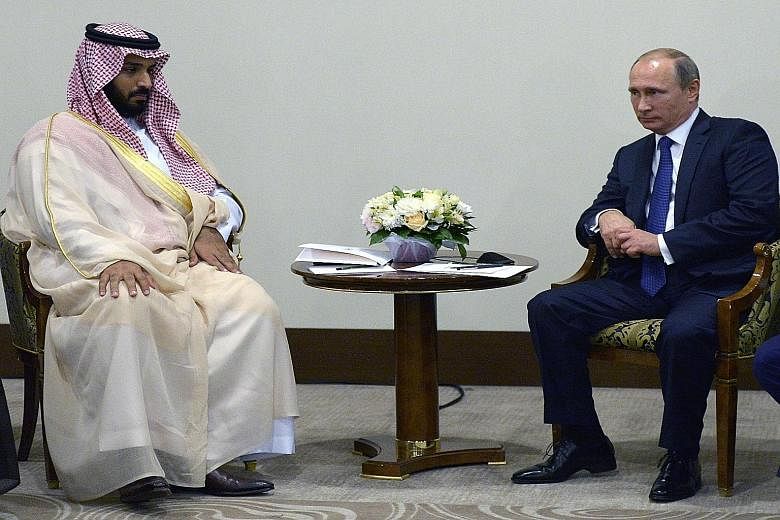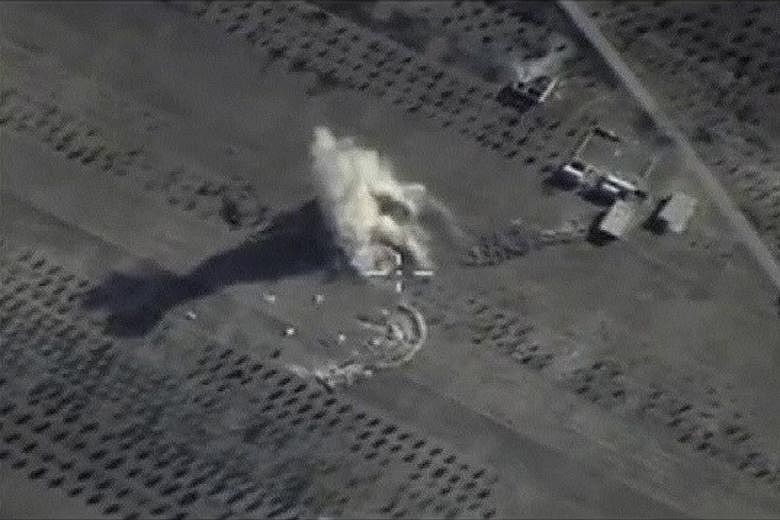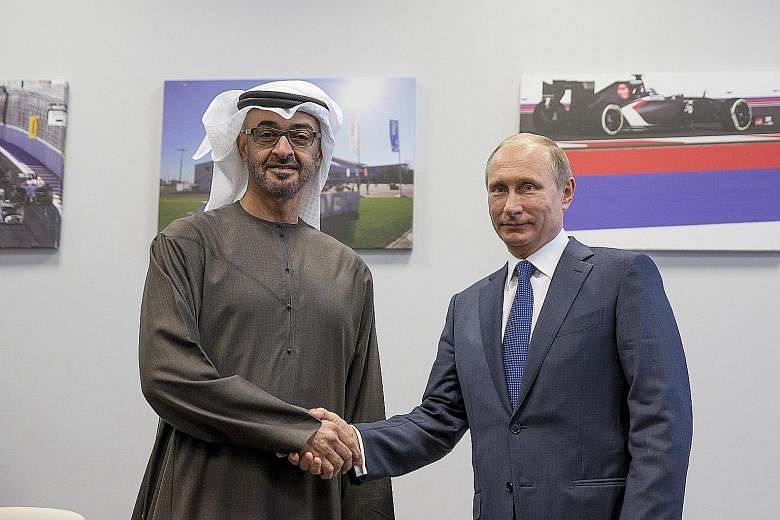MOSCOW • Russian President Vladimir Putin defended his air and cruise missile strikes on terror targets in Syria as two Saudi Arabian officials softened their government's position on Mr Bashar al-Assad's fate.
Mr Putin discussed his Syria campaign on Sunday with Saudi Arabia's Defence Minister and Prince Mohammed Salman Al Saud, who signalled a willingness to let President Assad remain in power longer, while the foreign ministers of both nations also met to consider the situation in Syria.
Mr Putin's bombing campaign to support his ally, Mr Assad, took the United States and Nato by surprise and overshadowed a flurry of diplomacy over how to tackle the conflict.
As Russia builds up its military presence in Mr Assad's stronghold on the eastern Mediterranean Sea, US President Barack Obama dismissed any notion that his leadership on the world stage was being challenged.
Now Russia is leading the diplomatic charge, with Mr Putin in bilateral meetings with Abu Dhabi Crown Prince Sheikh Mohammed Zayed Al Nahyan and Saudi Prince Mohammed, who were in Sochi in southern Russia, site of a Formula One motor race.
Mr Putin again called for a political resolution emanating from Mr Assad's government.
Later in the day, Russian Foreign Minister Sergei Lavrov met his Saudi counterpart, Mr Adel Al-Jubeir, who said through a translator that Mr Assad must depart after a political transition. Previously, the kingdom's position was that Mr Assad's departure was a pre-condition to any settlement.
"This transitional government must develop principles for the implementation of reforms, develop a Constitution and, of course, as a result that will lead to the resignation of Bashar Assad," Mr Al-Jubeir said.
In a Sept 30 interview in the Saudi-owned al-Hayat newspaper, Mr Al-Jubeir said discussions were focused on "(Mr) Assad's fate during the transitional period, whether he will leave power at its outset or stays in Syria without any authority or privileges."
Last week, the Obama administration abandoned its attempt to build and train a rebel force in Syria to take on the Islamic State in Iraq and Syria (ISIS). The US will instead focus on equipping selected leaders and providing air support to their units, including Arab and Kurdish groups in Syria.
Mr Putin said the Russian air campaign was already more effective than discontinued US efforts to support some militant groups. "It would have been better to give us US$500 million (S$698 million)," he said of the aborted US programme to fund the Free Syrian Army. "At least we would have used it more effectively from the point of view of fighting international terrorism."
Speaking in an interview with state-run television channel Rossiya 1 broadcast on Sunday, Mr Putin said Russia's involvement was legal and reasonable because it followed a Syrian request for assistance.
He questioned whether the US had lived up to either of those standards.
"The simplest solution for them would be to join us and, in that way, legalise their actions on Syrian territory," Mr Putin said of the US.
While the US and Russia say they agree on a need to counter ISIS, US officials say most Russian strikes have targeted Assad opponents other than ISIS, including some supported by the US and its allies.
Mr Putin reiterated that Russia will not send ground troops to Syria and said he does not seek to stoke religious tensions in the Middle East. Russian strikes, which have included missiles launched from the Caspian Sea, are intended to stabilise the legitimate authorities, he said.
BLOOMBERG



